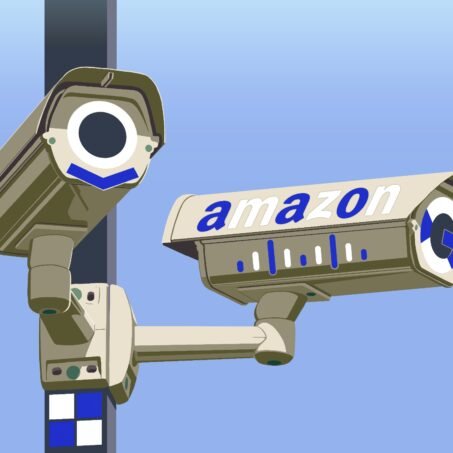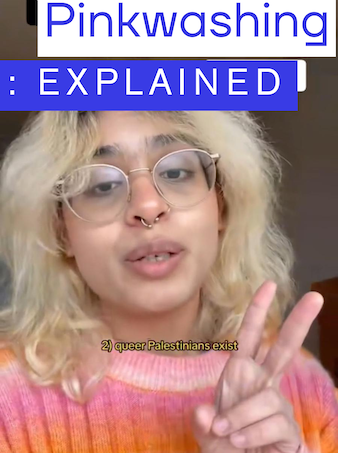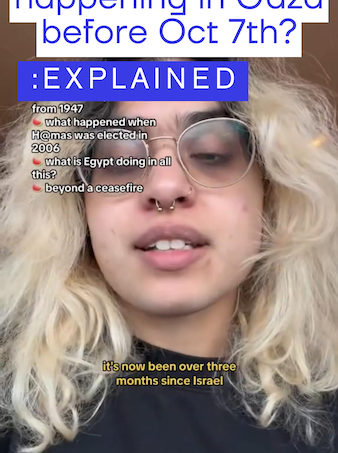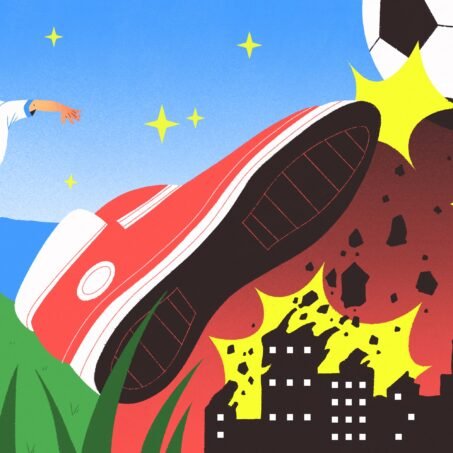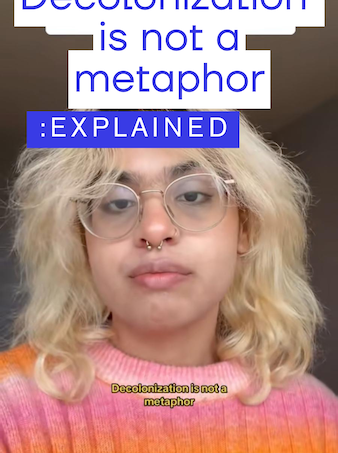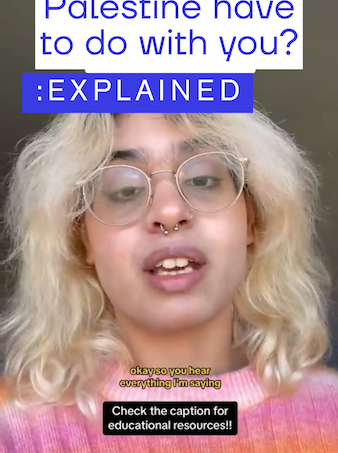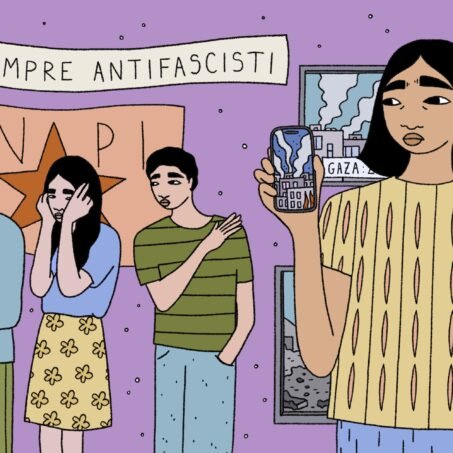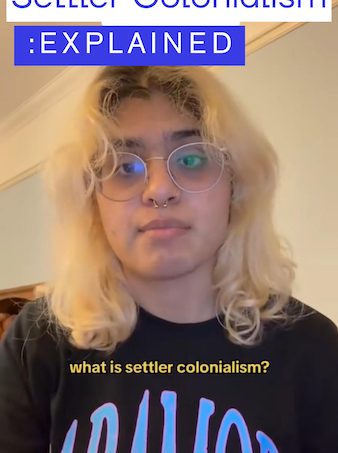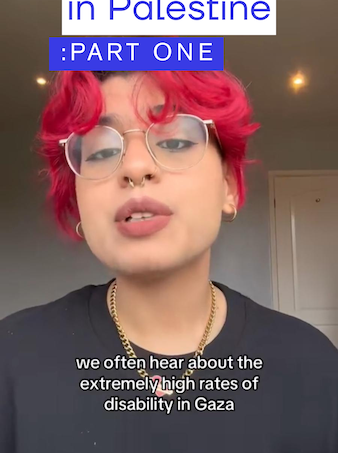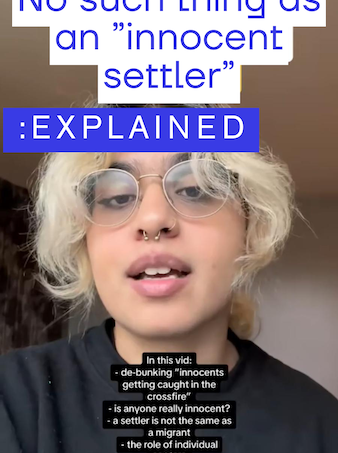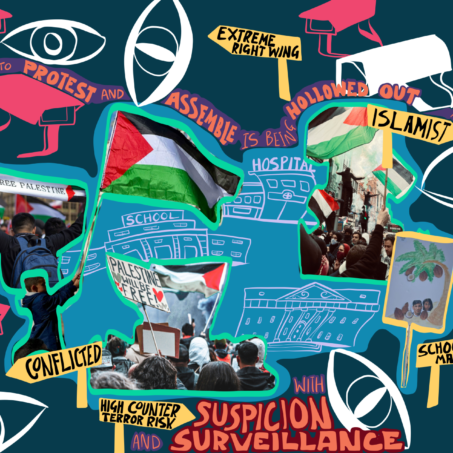At 8pm on 17th March 2022, I gathered with 20 other activists in the basement of the Edinburgh building I was living in. It was the final meeting before our direct action to occupy a university building the next day.
Our group was a coalition formed out of a climate activist group, the university staff union solidarity group, and a Palestinian activist group. Together we formed the idea of occupying and reclaiming a university building.
We were not trying to make demands from the university administration, who seldom listen to us anyway. Rather, we occupied the building for ourselves. We didn’t need the university’s validation, we didn’t need them to meet our demands. Our goal was to re-imagine what our education could look like without the power struggle of fighting the administration.
We wanted to create an alternative radical education system to counter the hierarchical bureaucratic university system. To make a “new” university, a reconstruction built on what the university was not teaching and powered by the knowledge that was being denied by our curriculum.
We were carrying out an experiment on what an educational setting could look like, without hierarchies, without limitations. Where students are teachers and teachers are students. Where our ethics and politics become an embodied practice in our learning.
So all crammed together on that evening, we were fine tuning the last details. Who would go where? Who would carry the padlocks? Who would install our fire exit and safety procedure? Who would hide in the vents? What would we do if the university called the police ?
After the meeting, we were all buzzing with excitement: tomorrow would be the day we would act; the day we would resist. With the adrenaline still pumping in my body, I made my way upstairs back to my flat.
Once I arrived, my flatmate told me that my brother had been trying to call me, saying there was a family emergency.
My adrenaline quickly turned to dread. I knew what was coming even if I couldn’t put words to it. I called my brother to hear the news that my sweet Teta, my grandmother, had passed away. I hit the floor, yelling, screaming, raging.
This was my first time really knowing grief. I didn’t know what to do: I didn’t know if I should go to Amman to bury my grandma with my Baba, go to America to be with my family, or stay. Even though staying felt like the wrong choice, my Baba needed to grieve alone as a son, and going back to California would be too expensive. So, I stayed.
Stuck in Edinburgh, I didn’t know what to do with myself. Should I join the occupation or should I grieve?
I thought grief was depression and despair. But feeling my grandmother’s loss made me realise that grief was energy untethered. It was my grandmother’s love, no longer bound through physical form. t I did not know sorrow to be so powerful, so strong, so moving. My grief became my action.
I decided to do both: I was going to grieve, and I was also going to join the occupation.
My comrades did not know my Teta so they could not share in my grief. I kept it to myself, renting out a Quran from the library to take with me in my backpack, and took up my position, ready to storm the building.
My Teta was the last person in my life who knew Palestine before Israel. She left Safad when she was 14 years old and died without fulfilling her dream of returning home. I grieved not only her death but also for her dreams.
I realised that the only way to make space for my grief was to join in occupying the building. To me, that was the only choice. To fight for Palestine was to fight for my grandmother’s unrealised dream. To create a space to educate, organise and resist.
That week of action felt like a fever dream. I’d never worked so hard or organised so much. Each day of the occupation, new forms of knowledge were being proliferated in the space. Through endless schedules of workshops, lectures, open mic nights, teaching and reading circles, we taught ourselves. We taught ourselves what the university wouldn’t teach us. We taught ourselves about Palestine, Indigenous struggles, Black liberation, climate change, and radical education. It was a space of deep action and knowledge, where we learned from each other and with each other. The power of my grief was what kept me going.
In October 2023, almost a year and a half later, grief met me at a similar crossroads. Alongside the overarching grief about the atrocities happening in Gaza, my 19 year old cousin Hamza was killed by the IDF, three days before I was due to go to Bosnia to monitor and report on human rights violations at the border.
At that moment, the grief was overwhelming. I grieved a dream of a life for myself in the Middle East. I grieved the innocence of ignorance. I grieved the immediacy of change. I grieved peace.
I was reminded in this moment of the power of transforming grief into action. Transforming the void, loss, the inescapable, into something hopeful and metamorphic.

Join our mailing list
Sign up for shado's picks of the week! Dropping in your inbox every Friday, we share news from inside shado + out, plus job listings, event recommendations and actions ✊
Sign up for shado's picks of the week! Dropping in your inbox every Friday, we share news from inside shado + out, plus job listings, event recommendations and actions ✊
So with my grief I went to Bosnia. I realised that doing this work was not separate to the grief of Palestine; rather, the work I was doing was fuelled by my grief and existed to uphold a sense of justice.
My grief taught me to be present and in tune with the realities of the world. Hearing the stories, recording testimonies, and witnessing the systems of violence at the EU borders has brought me closer to this path of truth and justice – not as separate from myself, but as embodied within myself.
The more I delve into my political work, the more I realise that it is bringing me closer to something wider, more universal and spiritual. In Islam, specifically in Sufi practises, there is the belief that Allah is truth, and truth is Allah. That to find god is to embark on the never-ending, never completed quest for truth. In this pursuit for truth, you become closer to the heart of Allah, closer to the Whole. This grief is an action towards truth and justice, toward something greater than myself.
My grief became a process of self actualising this embodiment of justice. I grieved my Grandmother, yes. But her death transcended her physical departure. My Teta became Palestine. She became the loss of our homeland. She became the embodiment of the injustices that seeped through our generations of exile and diaspora.
To grieve is to act on this injustice. To grieve is to move against the tide of order. To grieve is to fight for justice. To grieve is to enter truth. To grieve is to return to the oneness of reality. To grieve is to become.
What can you do?
Podcasts:
Books:
- Teaching to Transgress by bell hooks
- Pedagogy of the Oppressed by Paolo Friere
Articles:
- Grief Belongs in Social Movements. Can We Embrace It? by Malkia Devich-Cyril
- Grief and activism in an unjust world by Anna May
- There’s Great Power in Grief. Will We Use It to Fuel Solidarity With Palestine? by Ngakiya Camara
- War on Gaza: I am not Palestinian. But if you are not grieving, something is wrong by Francesca Vawdrey
- More articles about Palestine on shado mag



